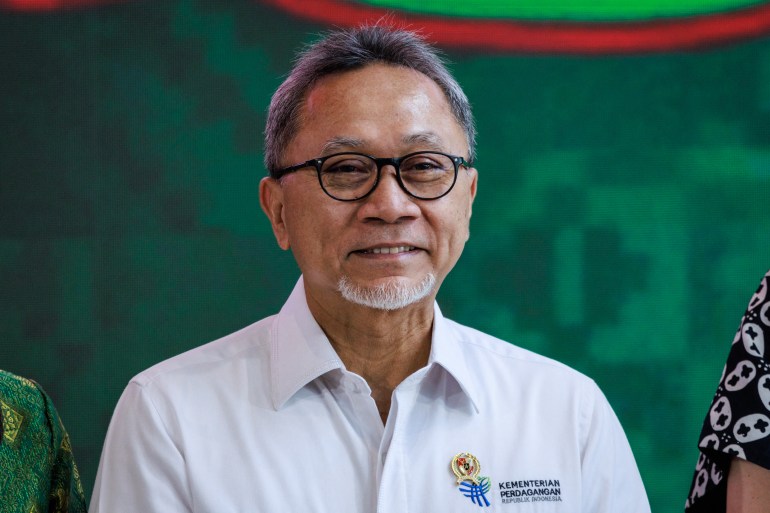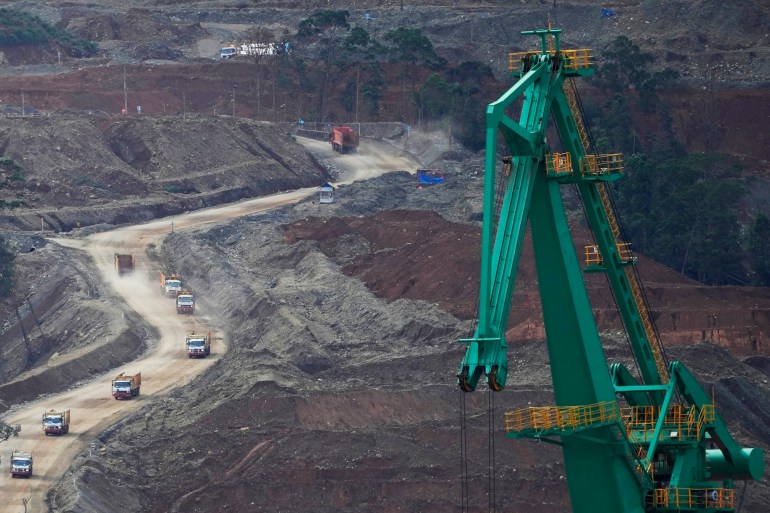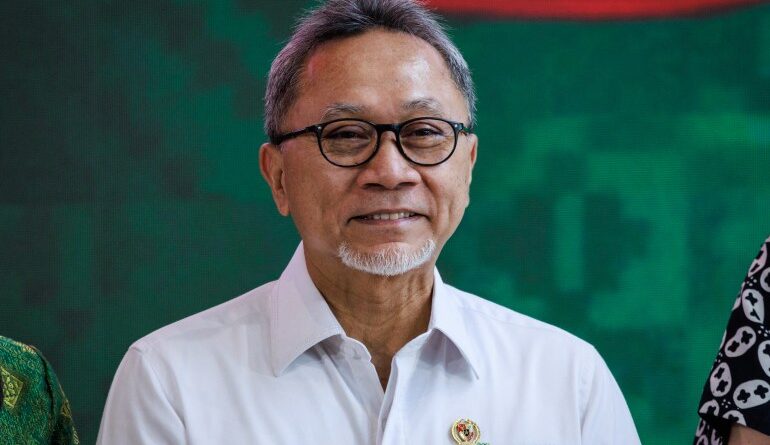Indonesia faces higher tariffs on China as businesses criticize imports
Medan, Indonesia – Siti Faiza has run Faiza’s Production House, a traditional women’s clothing business, in Solo, Central Java since 2008.
Faiza started her business as a university student, designing and sewing clothes at home.
When sales started to take off, Faiza hired some of her neighbors to help grow the business. Today, Faiza’s Production House employs 12 tailors.
However, Faiza says it is difficult to compete with cheap clothes from overseas, especially China.
“Sometimes I see imported clothes online for as low as 40,000 rupiah ($2.65). That wouldn’t even cover the cost of my cloth and I always wonder can the prices be that low,” Faiza told Al Jazeera.
The Indonesian government has heeded the complaints of small business owners like Faiza, proposing tariffs of up to 200 percent on Chinese goods.
Commerce Minister Zulkifli Hasan said that the flood of Chinese products in the domestic market due to the US-China trade war is threatening small businesses with “collapse”.
Faiza’s husband Indrawan told Al Jazeera: “I support the tariffs and I think we should completely ban imports because they are hurting local businesses.
“Indonesia already has a large domestic textile market. Why do we have to import anything?
In June, thousands of workers in Jakarta protested against Chinese imports, prompting Hasan to propose tariffs to protect estimated small and medium-sized enterprises (MSMEs). of the country’s 64 million.
“The United States can impose a 200 percent tariff on imported pottery or clothing; we can do it again to ensure that our MSMEs and industries will survive and thrive,” Zulkifli said while speaking to local media.

The proposed tariffs will affect a wide range of goods, from shoes and clothing to cosmetics and ceramics.
China is Indonesia’s largest trading partner, with two-way trade last year reaching $127bn, which means the proposed tariffs could have a major impact not only on the economy but on relations between Jakarta and Beijing.
Jakarta has a history of economic integration, the largest in Southeast Asia with a gross domestic product of more than $1.3 trillion, to support local industry.
Under outgoing President Joko “Jokowi” Widodo, who has set himself the ambitious goal of raising the per capita gross domestic product (GDP) to $25,000 by 2045, Jakarta has followed the model of “new development”. which aims to foster rapid economic growth while protecting local businesses. from the competition, said Ian Wilson, a lecturer in political and security studies at Perth’s Murdoch University.
“The development of the Southeast Asian model is a well-known example beginning in the 1970s with government intervention in the economy overseeing the shift of labor, production and imports from low-income agriculture to high productivity and industry,” Wilson. said Al Jazeera.
“However, the immediate question is how much is there to charge these kinds of fees?”
Although the proposed tariffs have been enthusiastically supported by many local businesses, economists have raised concerns about the wider implications of such measures.
Siwage Dharma Negara, a senior fellow at the ISEAS-Yusof Ishak Institute in Singapore, says the fees should be carefully considered.
“Just reducing imports may not be a good goal. We need imports for raw materials and equipment for the local industry, and if tariffs are imposed, these industries will be affected,” he told Al Jazeera.
Negara said that the government should focus on supporting the growth of local businesses without restricting imports.
“Businesses need to be helped to work well and grow stronger, and for this the government needs to provide clear terms,” he said.
The tariff proposal also marks a contrast to Jakarta’s generally warm relationship with Beijing, which has spearheaded several infrastructure projects in the country under its Belt and Road Initiative banner.
Following the announcement of the proposed tariffs, Chinese Foreign Ministry spokesman Lin Jian said Beijing was monitoring the situation.
“China will closely monitor the safeguard tariffs that Indonesia may impose on certain products, and take necessary measures to protect the rights and legitimate interests of Chinese companies,” Lin said.

Trissia Wijaya, a senior researcher at Ritsumeikan University in Kyoto, Japan, said she does not think the proposed tariffs will have a major impact on Indonesia-China economic cooperation as a whole.
“This can be traced back to the real basis of our relationship in the past few years, which is a significant amount of mineral trade, where China has taken more than 80 percent of our nickel production,” Wijaya told Al Jazeera.
“The supply of nickel is important to China’s strategic interests. As long as the main element is not damaged, I don’t think it will anger Beijing as it applies to textiles, ceramics and electronics.
Back in Solo, Faiza doesn’t hold out hope that tariffs will be the solution to her business woes.
“It’s a free market today, so whether we want to accept imports or not, we live in an online world where people can buy whatever they want,” he said. “
“The important thing for me is how I can improve my products and justify the high prices. We need to be innovative and protect our quality. There is no hope in fighting imports. ”
#Indonesia #faces #higher #tariffs #China #businesses #criticize #imports
